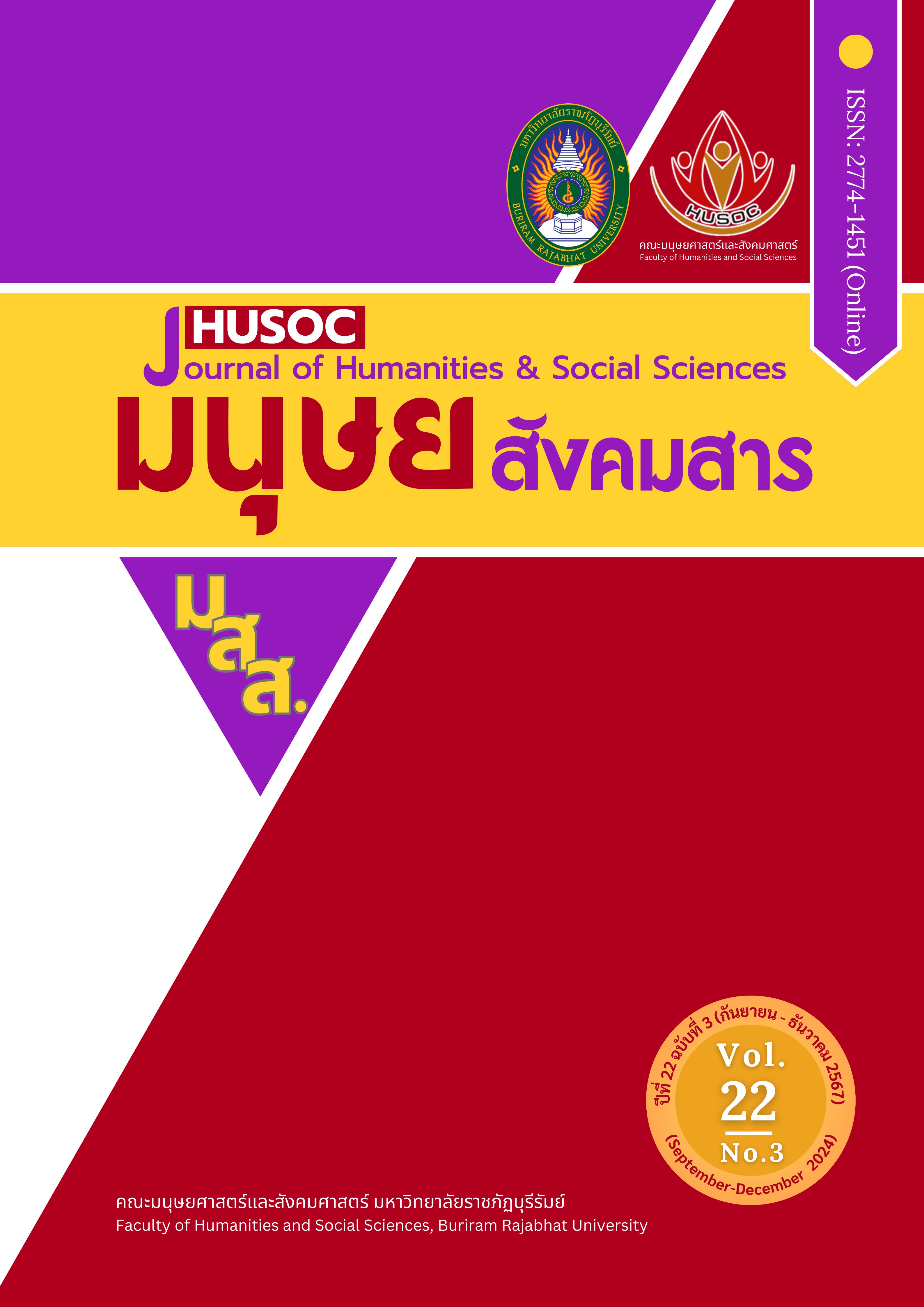Success Factors in Process of Sustainable Solution to Area-Based Poverty with Participatory Public Administrative Mechanism: Analyzing from Public Sector Excellence Award Winning Projects in Year 2024
Main Article Content
Abstract
This research aimes to analyze success factors in process of sustainable solutions to area-based poverty with participatory public administration mechanism by examining the Public Sector Excellence Award winning projects of 2024. The research is a qualitative research method, and the data were collected by research methods as follows: 1) mainly, a literature review of related documents; and 2) an in-depth interview of 90 key informants who were specifically selected. Data were analyzed by a content analysis and cheked correctly by a data triangulation. The research findings indicated that the occurred success factors were categorized into three stages: 1) the primary stage – where a process of integration creation together with the participation intended to solve area-based poverty consisted of four success factors; 2) the intermediate stage consisted of four success factors – involving value adding, standard raising, manufacturing, and marketing through integration mechanisms and public participation; and 3) the fulfillment stage – a process of overcoming poverty and achieving a sustainable self-reliance of the target group, consisted of four success factors.
Article Details

This work is licensed under a Creative Commons Attribution-NonCommercial 4.0 International License.
เนื้อหาและข้อมูลในบทความที่ลงตีพิมพ์ในวารสารทดสอบระบบ ThaiJo2 ถือเป็นข้อคิดเห็นและความรับผิดชอบของผู้เขียนบทความโดยตรงซึ่งกองบรรณาธิการวารสาร ไม่จำเป็นต้องเห็นด้วย หรือร่วมรับผิดชอบใดๆ
บทความ ข้อมูล เนื้อหา รูปภาพ ฯลฯ ที่ได้รับการตีพิมพ์ในวารสารทดสอบระบบ ThaiJo2 ถือเป็นลิขสิทธิ์ของวารสารทดสอบระบบ ThaiJo2 หากบุคคลหรือหน่วยงานใดต้องการนำทั้งหมดหรือส่วนหนึ่งส่วนใดไปเผยแพร่ต่อหรือเพื่อกระทำการใดๆ จะต้องได้รับอนุญาตเป็นลายลักอักษรจากวารสารทดสอบระบบ ThaiJo2 ก่อนเท่านั้น
References
Ansell, C., & Gash, A. (2008). Collaborative governance in theory and practice. Journal of Public Administration Research and Theory,
(4), 543-571.
Baxter, W., & Grossman, N. (2017). A call to action: Thailand and the sustainable development goals (SDGs). Editions Didier Millet.
Bevir, M. (2010). Governance: A very short introduction. Oxford.
Jai-Aree, A. (2016). Multi-party participatory process for sustainable environmental management: A case study of community forest management of Ban Pu-Tei, Kanchanaburi Province, Silpakorn University e-Journal (Social Sciences, Humanities, and Arts), 36(1), 111-136. [in Thai]
Manorom, K. (2022). Poverty: Meaning and operations case study of Amnat Charoen Province. Ubon Ratchatani University. [in Thai]
Ministry of Foreign Affairs. (2016). A practical approach toward sustainable development. Ministry of Foreign Affairs of the Kingdom of Thailand. [in Thai]
Office of the Public Sector Development Commission. (2024). Criteria for consideration of public sector excellence awards for the year
Office of the Public Sector Development Commission. [in Thai]
Perry, J. L. (2007). Democracy and the new public service. The American Review of Public Administration, 37(1), 3 – 16.
Puang-ngam, K. (2019). Self-Governance of the local community. Dharmasarn Printing Company Limited. [in Thai]
Rhodes, R.A.W. (1997). Understanding governance, Policy networks, governance, reflexivity and accountability. Open University Press.
Speer, J. (2012). Participatory governance reform: A good strategy for increasing government responsiveness and improving public
services? World development, 40(12), 2379-2398.
Strategic Transformation Office. (2024). Criteria for on sideration of the public excellence awards in participatory public administration in branch category of together to solve poverty for the year 2024. Strategic Transformation Office. [in Thai]


